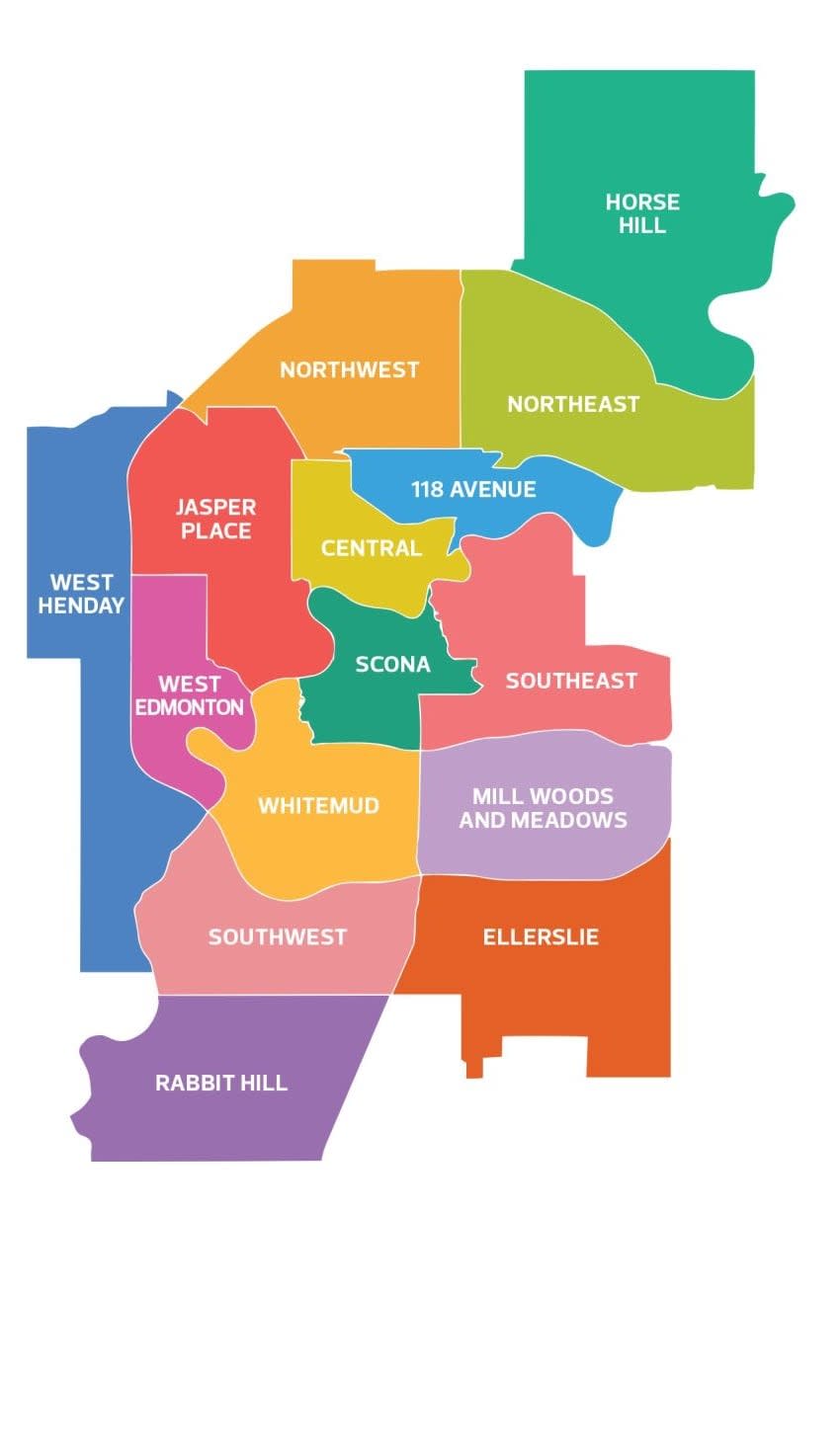Edmonton promises residents 'freedom of movement' to calm concerns around 15-minute cities
Edmonton city council voted to move forward on its district-planning policy Tuesday, while making a change intended to calm some of the concerns around 15-minute cities.
Confusion and frustration permeated public hearing sessions as councillors attempted to hash out the details of the new district-planning policy while addressing a wide range of concerns brought forward by members of the public.
The policy and accompanying plans divide the city into 15 districts, replacing a patchwork of individual neighbourhood plans, some of which are decades old.
Council passed the district policy in a 10-2 vote Tuesday afternoon along with an amendment noting that the plans would not restrict the movement of Edmontonians.
The amendment, moved by Coun. Aaron Paquette and seconded by Mayor Amarjeet Sohi, passed with a 12-0 vote.
It reads as follows: "The District Policy and the District Plans shall not restrict freedom of movement, association, and commerce in accordance with the Canadian Charter of Rights and Freedoms."
Many speakers during a series of public hearings opposed the district policy, citing 15-minute cities as part of a global agenda. The concept has been the subject of conspiracy theories in cities around the world, including misinformation that it's a form of government takeover.
In Edmonton's City Plan, adopted in 2020, districts are a collection of neighbourhoods with the goal of meeting most residents' daily needs within a 15-minute walk, bike or transit trip from their home.
At the time the City Plan was adopted, more than 200 local geographic plans were in effect. The city reviewed the plans and found that many had fulfilled their purpose or didn't otherwise fit the city's overall vision for growth.
In 2021, the city repealed 75 local plans to streamline land-use planning. Remaining plans came under review during the district planning project.
In Tuesday's debate, some council members addressed concerns about perceived restrictions on movement.
"It's disappointing that we're here today, that we even have to put this in this document," Coun. Erin Rutherford said.
"Quite frankly, it shows an erosion of trust in our democracy as a whole, I think. And that's really sad."
Rutherford pointed to the Charter of Rights and Freedoms, as did Coun Ashley Salvador when they referred to existing protections of assembly, movement and expression.
"My concern is that, if we're going to start including these types of things that are already enshrined and protected, what other things should we be looking at? I think that that's a reasonable question to ask yourself in this circumstance," Salvador said.
Paquette was one of several councillors who noted the importance of holding the public hearing to wade through misinformation and better inform the public on the city's vision for urban design.
"We're coming out of a very tumultuous time, through COVID, through the actions that people experience, then through changes in how municipalities are building," Paquette said.
"When you pair those things together, sometimes what happens is that a narrative comes out that there is a desire by local governments to restrict movement or to be part of some larger organization.
"But the fact is, we're just here to try to do good work for the city, to try to find ways to reduce taxes, to operate in a more efficient way."
Other concerns
Council has held four days of district plan discussions since late May. It's the next phase of Edmonton's urban planning overhaul. It comes on the heels of new zoning rules that went into effect this year, as the city prepares to grow to two million people.
Councillors and Edmonton's mayor also attempted to sort through other concerns from residents on Tuesday including environmental effects, layouts of mature neighbourhoods and the impact on the cost of living.
"I'm deeply concerned there's not enough attention in the district plan to preserve and protect our air and water," Christine Lefebvre with the Old Glenora Conservation Association told council.
Lefebvre mentioned she was concerned about properly managing increased densification in neighbourhoods.

"As our city continues to develop, we witness a significant rise in these impermeable surfaces, such as pavement, concrete and rooftops," Lefebvre said.
"While these developments may seem necessary for urban expansion and infrastructure, they bring a host of ecological challenges that demand our attention and action."
Resident Joe Miller was among many speakers who expressed feeling like there has been a lack of effective consultation with residents.
"It is fundamentally important that citizens have trust in city administration and elected councillors. There must be trust in the process how policy is developed," Miller told council.
The city plan promotes having half of Edmonton's travel ultimately be through walking, biking or transit.
Some opposing speakers voiced concern this will impede their ability to drive a motor vehicle to get around.
"It's not about providing less opportunity and choice for people who choose to drive, but providing more opportunity and choice so that people can choose not to drive if that's what they want to do," Paquette said.
The public hearing will continue at city hall Wednesday.


